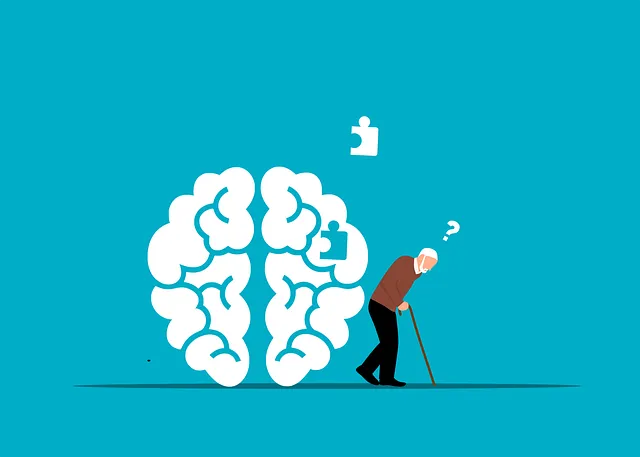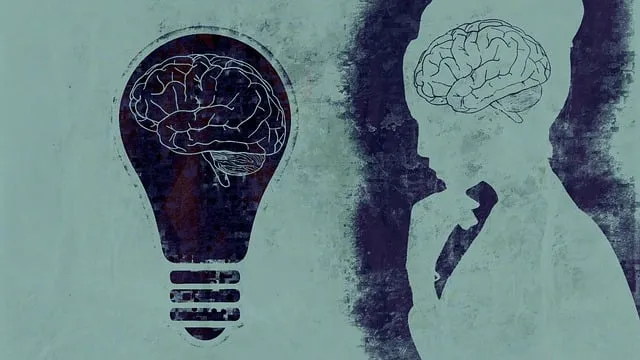In diverse societies like the US, cultural competency in healthcare, especially mental health services, is crucial for bridging disparities and improving patient outcomes, particularly for racial and ethnic minorities. Kaiser Permanente Lafayette prioritizes this through comprehensive training, accessible resources like their mental health phone line, and workshops focusing on self-awareness and depression prevention. Their integrated initiatives enhance provider-patient relationships, create a culturally sensitive healthcare system, and improve patient satisfaction, especially among minority groups with distinct communication preferences.
Cultural competency in healthcare is essential for providing quality patient care. In today’s diverse society, understanding cultural nuances can significantly impact treatment outcomes. This article explores the significance of cultural competency, focusing on Kaiser Permanente’s innovative approach to mental health support and training. We discuss how cultural sensitivity influences patient experiences and offer effective strategies for integrating comprehensive training. Additionally, we highlight resources like Lafayette’s contributions to continuous learning, emphasizing their role in advancing healthcare equity, especially in mental health services, with relevant contacts like the Kaiser Permanente mental health phone number.
- Understanding Cultural Competency in Healthcare: Why It Matters
- Kaiser Permanente's Approach to Mental Health Support and Training
- The Impact of Cultural Sensitivity on Patient Outcomes
- Effective Strategies for Integrating Cultural Competency Training
- Resources and Tools for Continuous Learning: Lafayette's Contribution
Understanding Cultural Competency in Healthcare: Why It Matters

Cultural competency in healthcare refers to the ability of providers to understand, appreciate, and interact effectively with patients from diverse cultural backgrounds. It’s more than just treating people equally; it involves recognizing and respecting the unique beliefs, values, and traditions that shape an individual’s health experiences. In a diverse society like the United States, where nearly one in five residents was born outside the country (U.S. Census Bureau, 2021), this skill set is crucial for delivering quality care.
For mental health services specifically, cultural competency can make a significant difference in patient outcomes, as it helps address disparities in access and quality of care experienced by racial and ethnic minorities. Organizations like Kaiser Permanente prioritize this training to ensure their professionals are equipped to provide culturally sensitive support. For those seeking mental health resources, the Kaiser Permanente mental health phone number Lafayette connects individuals to services tailored to their cultural needs. This approach not only promotes self-esteem improvement and self-awareness exercises but also aids in mood management by fostering a safe, understanding environment for care.
Kaiser Permanente's Approach to Mental Health Support and Training

Kaiser Permanente, a leading healthcare provider, has made significant strides in addressing mental health concerns within its organization and community. Their comprehensive approach to mental health support begins with recognizing the diverse needs of patients from various cultural backgrounds. With a dedicated team of professionals, Kaiser Permanente offers specialized services tailored to different communities, ensuring that everyone receives the care they need. One key aspect is their emphasis on training, particularly in conflict resolution techniques, which helps bridge communication gaps and fosters an inclusive environment.
The organization provides accessible resources through hotlines like the Kaiser Permanente mental health phone number Lafayette, offering immediate support for those seeking assistance. Moreover, they organize workshops and sessions focusing on self-awareness exercises and depression prevention strategies. By integrating these initiatives, Kaiser Permanente aims to enhance patient outcomes, improve provider-patient relationships, and create a more culturally sensitive healthcare system.
The Impact of Cultural Sensitivity on Patient Outcomes

Cultural sensitivity plays a pivotal role in shaping patient outcomes and overall satisfaction within healthcare systems. In the context of mental health services, this becomes even more critical as cultural nuances can significantly influence how individuals from diverse backgrounds perceive and engage with treatment. For instance, consider the impact on patients from minority ethnic groups who might have unique communication preferences or values that differ from mainstream practices.
A culturally sensitive approach ensures that healthcare providers, such as those available at Kaiser Permanente mental health phone numbers like Lafayette, can offer tailored care. This involves understanding and respecting diverse cultural beliefs, traditions, and practices related to mental health. By incorporating Cultural Sensitivity in Mental Healthcare Practice, burnout prevention becomes easier as providers are better equipped to manage a wide range of patient needs without succumbing to stress or exhaustion. Effective training in healthcare provider cultural competency can thus improve access to quality care and foster more positive patient experiences.
Effective Strategies for Integrating Cultural Competency Training

Integrating cultural competency training into healthcare provider education is a powerful strategy to enhance patient care and outcomes. One effective approach involves incorporating diverse case studies and role-playing scenarios into training programs. These methods allow professionals to navigate complex cultural interactions, fostering empathy and improving their ability to connect with patients from various backgrounds. By simulating real-life situations, trainers can address challenges related to language barriers, differing healthcare beliefs, and cultural norms, ultimately leading to better patient engagement.
Additionally, ongoing mentorship and peer support programs can significantly contribute to the success of cultural competency training. Assigning experienced mentors who reflect the diversity of the patient population can provide guidance and real-time feedback. Such initiatives, especially in organizations like Kaiser Permanente, can ensure that mental health professionals receive tailored support. For instance, the Lafayette region’s access to specialized Mental Health Education Programs Design can empower healthcare providers to offer effective Anxiety Relief services while considering cultural nuances. Regular risk assessments for mental health professionals also play a crucial role in identifying and addressing potential challenges, ensuring a comprehensive training experience.
Resources and Tools for Continuous Learning: Lafayette's Contribution

Resources and Tools for Continuous Learning: Lafayette’s Contribution
At Lafayette, we understand that cultural sensitivity in mental healthcare practice is paramount. To this end, we’ve developed a comprehensive suite of resources and tools designed to enhance compassion cultivation practices among our providers. These include interactive workshops focused on topics like navigating diverse cultural beliefs around mental health and depression prevention, ensuring our team is equipped to offer empathetic care tailored to each patient’s unique background.
Our library boasts a wealth of materials, from academic journals to multimedia content, all accessible through the Kaiser Permanente mental health phone number Lafayette. This easily navigable platform facilitates continuous learning, encouraging providers to stay abreast of the latest research and best practices in cultural competency. By fostering an environment that prioritizes both knowledge and understanding, we aim to improve patient outcomes and create a more inclusive healthcare setting.
Cultural competency training is a game-changer in healthcare, fostering better patient outcomes and improved care delivery. As evidenced by Kaiser Permanente’s innovative approach to mental health support and the significant impact of cultural sensitivity, investing in such programs is vital. By implementing effective strategies and leveraging resources like those provided by Lafayette, healthcare providers can navigate the complex tapestry of diverse patient populations. Remember that, in today’s world, staying culturally competent is not just a priority—it’s essential for delivering quality care to all, with a focus on mental health services accessible through the Kaiser Permanente phone line or similar resources.






